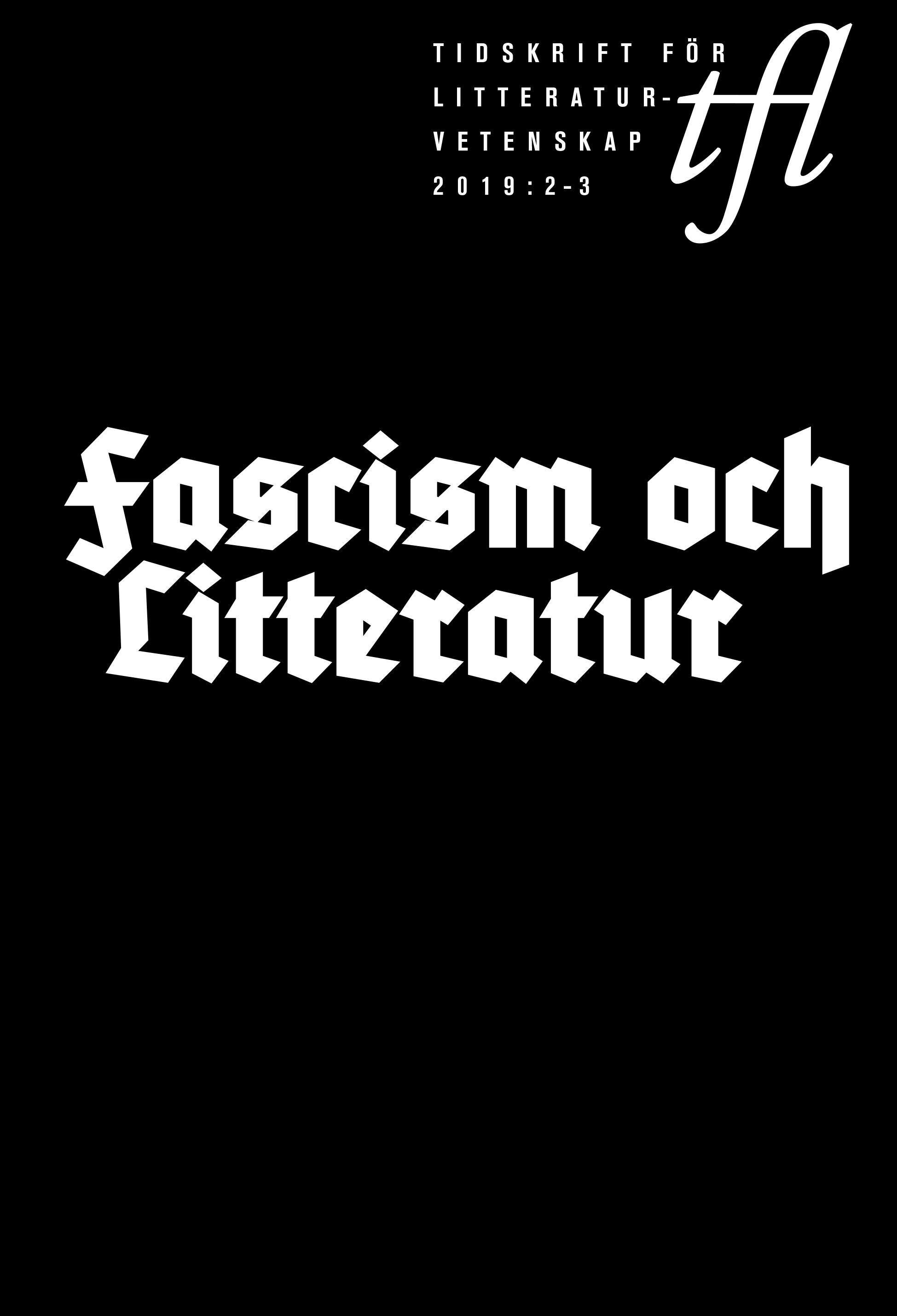Att läsa "fascistisk" poesi -och finna något annat
Örnulf Tigerstedts dualism ur ett kunskapsteoretiskt perspektiv
DOI:
https://doi.org/10.54797/tfl.v49i2-3.6667Nyckelord:
Örnulf Tigerstedt, fascism, epistemology, dualism, Finland-Swedish poetry, ethic readingAbstract
Reading ”Fascist” Poetry – and Finding Something Else: Örnulf Tigerstedt’s Dualism in an Epistemological Perspective
The Finland-Swedish poet Örnulf Tigerstedt (1900–1962) is known for his fascism, although he himself considered other concepts more adequate, such as Caesarism, monarchism and authoritarianism. Nevertheless, his reputation seems to both attract extreme right-wing readers of today and deter the majority of poetry readers. The aim of this article is to problematize the role of the reader and point out a dualistic pattern in Tigerstedt’s poetry, which complicates the picture. I want to raise questions about the ethics of reading poetry; how can we ensure that our reading does not become categorical and ideological when the poem itself is complex? My point of departure is epistemological rather than political, i.e. focus is on man’s possibilities and problems related to acquiring knowledge. I analyse two clusters of themes: war, power, violence and art, culture, form. My examples are taken from Vid gränsen (1928), Block och öde (1931), De heliga vägarna (1933) and Sista etappen (1940).
Nedladdningar
Downloads
Publicerad
Referera så här
Nummer
Sektion
Licens
Författaren/författarna behåller copyright till verket






